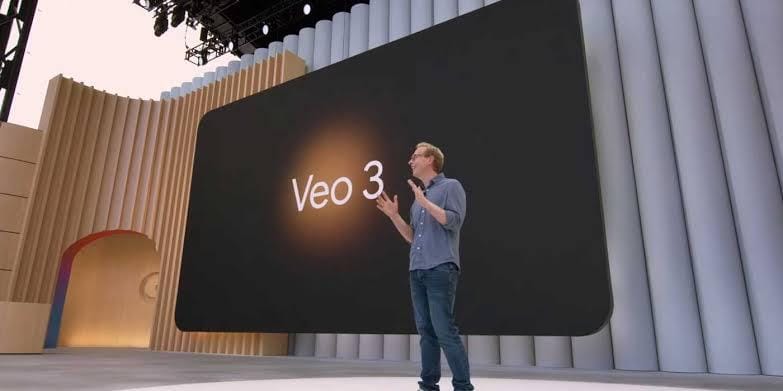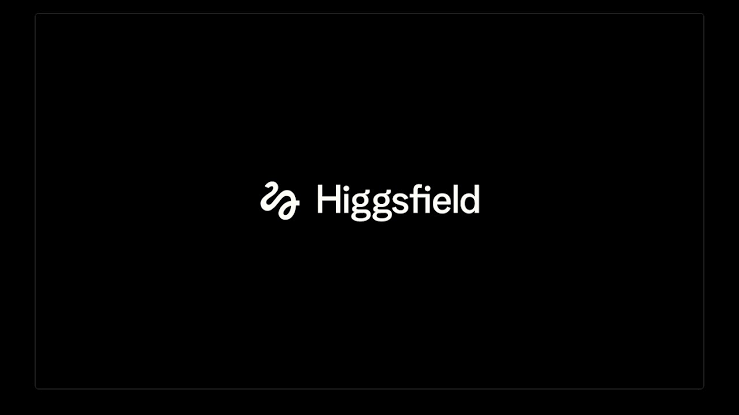Editor’s Note
Welcome to H2 of the year! Can you believe we are already here?
It looks like the first half flew by or rather, felt like a marathon. The second half is gearing up to be even bigger in Tech and AI. From big funding rounds to product that keep changing how we create and work, the energy is high and we are just getting started.
As always, we are here to make sure you do not miss the moments that matters. Thanks for riding along with us, Let’s make this half count

Here's your curated dose of the most significant events in the AI ecosystem this week
HeyGen’s Avatar IV Is Here
OpenAI Drops $3B on Coding Superpower, Windsurf
Nvidia’s New Transcription AI Is Ridiculously Fast
Lightricks Unleashes Free Open Source AI Video Tool

Google has officially rolled out its Veo 3 video‑generation model to users in more than 159 countries, making it accessible through the Gemini platform for those on the Google AI Pro plan. This feature launch represents a significant expansion of Google’s AI creative tools, opening up global access as of July 3, 2025. Veo 3, first unveiled in May, enables users to generate video clips up to eight seconds long from simple text prompts. But it goes beyond visual content, this model can also produce synchronized audio, including sound effects, ambient noise and dialogue. Google describes this launch as moving AI video generation out of the silent era.
The service is offered exclusively to paying subscribers of Google’s AI Pro plan and is limited to three video generations per user each day. Beyond the video rollout, Google executive Josh Woodward confirms that work is already underway to bring image‑to‑video generation capabilities into Gemini. This suggests that future versions may allow users to input an image and generate a matching video sequence, an expansion of the model’s input flexibility.
Analysts see Veo 3 as a potential stepping stone toward more advanced “world models” AI systems capable of simulating interactive environments. While Veo 3 remains a passive tool (generating non‑interactive output), speculation is growing that Google’s future AI initiatives might merge it with models like Genie to power dynamic, game‑like worlds. Comments from AI leadership suggest that interactive, playable content could be on Google’s long‑term roadmap.
The video generation space is already crowded with competitors such as Runway, Pika, OpenAI’s Sora, Scenario and others pushing boundaries. Veo 3’s unique selling point may be its audio generation and integration capabilities, features that many rivals haven’t matched. As of early July 2025, Veo 3 represents a major leap forward in Google’s AI toolkit. With global availability, synced audio, and plans for expanded input types, it sets a new bar for generative video capabilities. At the same time, it raises important discussions about content moderation, creative disruption, and the future of interactive media powered by AI.

Lovable, the fast-rising AI startup out of Sweden, is reportedly in talks to raise over $150 million in new funding, and it’s coming with a massive valuation of around $2 billion. That’s a huge leap considering they raised just $15 million about six months ago. It’s not every day you see a company scale this fast, especially in the crowded world of no-code tools. The startup, founded in 2023 by Anton Osika and Fabian Hedin, has built a platform that lets anyone create full-stack web apps just by typing what they want in plain English. No coding skills needed. It handles everything, from front-end design to backend logic and even database setup.
Since launching late last year, Lovable has been on a rocket ship. In just a few months, it hit $17 million in annual recurring revenue. By May 2025, that number shot up to $50 million. And now, as of July, it’s reportedly at $75 million. That kind of growth has put Lovable on investors’ radars in a big way. Accel is said to be leading this new round, with previous backers like Creandum and 20VC also returning. While the deal isn’t finalized yet, people familiar with the talks say investor demand has pushed both the fundraising amount and the company’s valuation higher than originally expected.
Lovable is part of a growing wave of AI coding platforms, alongside names like Replit, Cursor, and GitHub Copilot, but it’s carving out a niche by focusing on non-developers. Whether you’re a small business owner or a solo founder with zero tech background, Lovable wants to give you the power to build your own tools. They have even launched a new AI agent in beta that can edit code, troubleshoot bugs, and understand how your app is structured. It’s still early, but they plan to charge users based on how much they use the agent, which makes sense given the compute costs behind the scenes.
Of course, there are still a few bumps to iron out. Some users say things can get tricky when the logic gets complex, or if there’s too much happening in the backend. But for a product that’s only a few months into its journey, it’s making serious waves. If this raise goes through, Lovable won’t just be a breakout European startup, it will be one of the top players globally in the no-code AI space.
CONNECT WITH US ON LINKEDIN

A new startup called Songscription just launched an AI-powered “Shazam for sheet music.” Basically, you feed it an audio clip, could be a quick recording, a YouTube link, or even something you hummed and it gives the sheet music in minutes. For anyone who’s ever tried to transcribe music by ear, you know how big of a deal that is.
The tool works best right now with single-instrument tracks, especially piano. But the team behind it is already working on expanding to things like guitar tabs and multi-instrument arrangements, so bands and music teachers can get more out of it. There’s a free version if you just want to try it out, and a paid tier for longer or more detailed results.
The company is only seven months old, but it’s already got some solid momentum. One of the co-founders, Andrew Carlins, is still finishing up a dual degree at Stanford, and he sees a big future for this tool, especially in education. He described a pretty cool use case where a school music teacher in a rural town could quickly generate custom sheet music for their students, even if they’re working with limited resources or mixed skill levels. Songscription doesn’t stop at traditional notation either. If you are not comfortable reading sheet music, it also gives you a piano-roll view, so you can still follow along visually without needing a background in music theory. That makes it super accessible to more casual users too.
There’s also the legal side to consider. When uploading a song, users have to confirm they own the rights to the audio. According to the team, manually transcribing music has generally been fine, but automating it might bring up some new copyright questions.
Most of the tech was built from research by co-founders Tim Beyer and Angela Dai, using a mix of real musician performances and AI-generated training data. A lot of it is based on public domain music and synthetically generated tracks that simulate real-world recordings. They have already secured pre-seed funding from Reach Capital and are part of the StartX accelerator at Stanford, which shows that investors are paying attention. If Songscription continues to grow, it could seriously change the way musicians, teachers, and hobbyists interact with music, making the process of creating, learning, and teaching way smoother and faster.

Nothing has officially launched its first over‑ear headphone, the Headphone (1), and it’s as bold in function as it is in form. Priced at $299, this launch marks a big leap for the company, and includes a few standout features that might just turn heads.
Design is always a big deal for Nothing, and the Headphone (1) doesn’t disappoint. It carries over the signature semi-transparent look, now wrapped around full-size earcups. Designed with help from KEF, it’s both eye-catching and tuned for sound.
Where these headphones really shine is in user interaction. Instead of touch controls, they use tactile hardware: a volume roller that clicks satisfyingly and doubles for play/pause, a paddle switch for skipping tracks (or rewinding/fast-forwarding in supported apps), and a customizable button to launch your voice assistant, toggle ANC, or switch EQ profiles. In everyday use, the ANC works well, cutting through city hums and airplane noise, though voice calls in loud environments proved less reliable on review. Battery life is also notable: up to 35 hours with ANC on, and up to 80 hours if you switch it off, not to mention fast charging that gives you a couple hours’ play with just a five-minute charge.
Sound quality is a mixed bag. Tuned with KEF’s input, it handles bass and midrange solidly, especially for modern, pop-forward tracks, but falls a bit short on top-end sparkle and clarity compared to pricier flagships. Still, in its category, the audio feels well balanced.
Comfort-wise, the headphones did fine during a full workday, but their 320–330 g weight meant they started feeling noticeable after extended wear, especially when moving around. Preorders begin on July 4, with full availability starting July 15 in both black and white. For around $299, that slots them below Sony WH‑1000XM6 and potentially under Apple’s AirPods Max, making them an intriguing pick for design-forward users looking for solid noise cancellation without breaking the bank.
At the end of the day, Nothing Headphone (1) feels like a confident first step into over-ear territory. It leans into playful design and intuitive physical controls, all while delivering competitive audio performance at a lower price point.
Product Spotlight

Higgsfield AI is a new AI video generator designed to achieve cinematic results, allowing creators to use the tool when building scenes in professional videos
Trending AI tools for the Week
Soulmegle - Talk to strangers, not for distraction, but for connection.
Communionhub - More than app just an app it’s a movement
hiked07 - Oblivion Remake isn’t just a graphics mod — it’s a full rework in Unreal Engine
Readio - AI-powered text to speech reading assistant
Google Map Extractor - A free Google Map extractor for business leads—fast & efficient!
TIP OF THE WEEK
Stop Asking AI Questions, and Start Building Personal AI Software.
Feeling overwhelmed by AI options or stuck on basic prompts? The AI Fast Track is your 5-day roadmap to solving problems faster with next-level artificial intelligence.
This free email course cuts through the noise with practical knowledge and real-world examples delivered daily. You'll go from learning essential foundations to writing effective prompts, building powerful Artifacts, creating a personal AI assistant, and developing working software—all without coding.
Join thousands who've transformed their workflows and future-proofed their AI skills in just one week.
Most talked about tech story this Week
Upcoming Event

Venue: Brooklyn Bridge Hotel, New York
Date: July 7-8, 2025
Refer and Earn
Everything AI is read by thousands of AI/Tech/SaaS professionals and enthusiasts.
Reach out to us to give your product/tool the awareness it deserves.
That's a wrap!
Subscribe to our newsletter for exclusive insights, offers, and the latest updates in the AI ecosystem
Never miss a beat on the AI front!
Time to log off, but don't worry, we'll be back in your inbox before you can say 'Ctrl+Alt+Del'!" 👋
Did You Enjoy This Week’s Edition of Everything AI and Tech?






